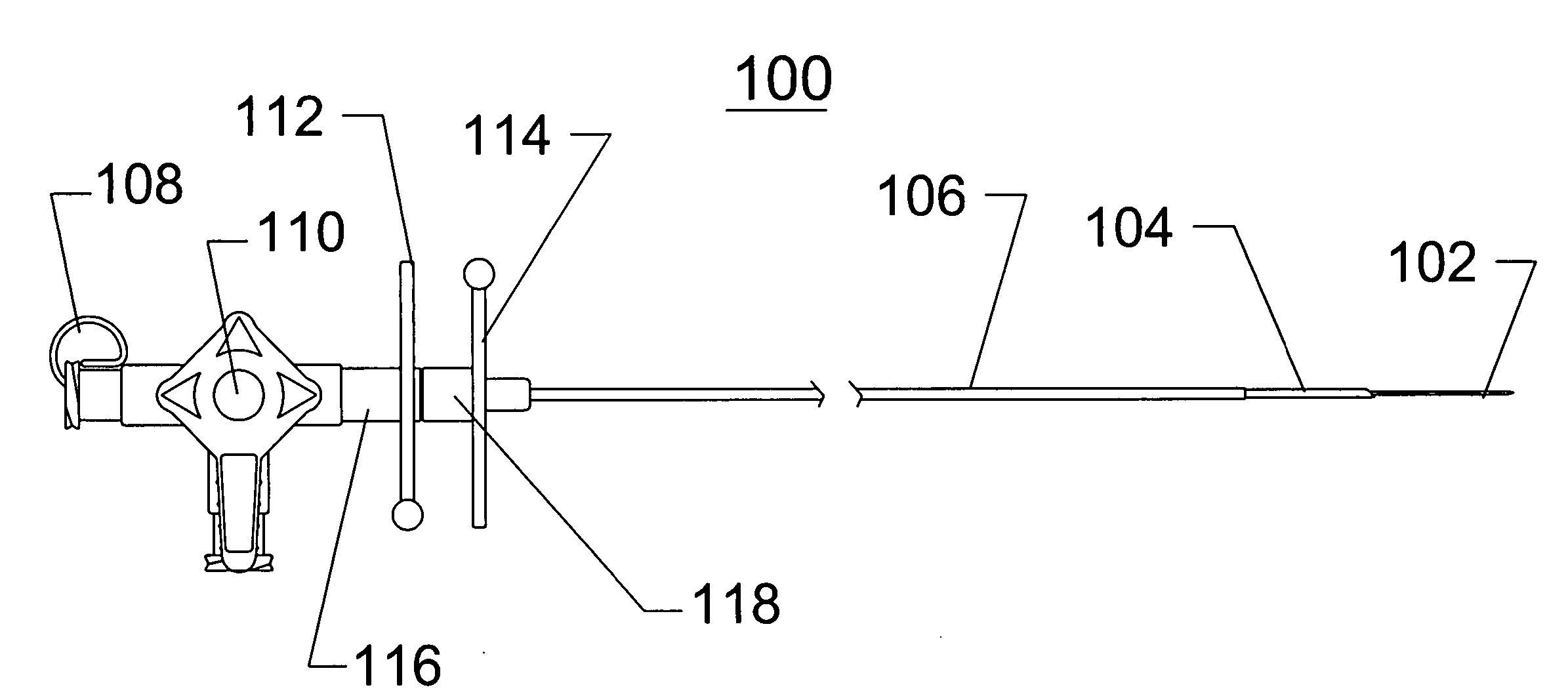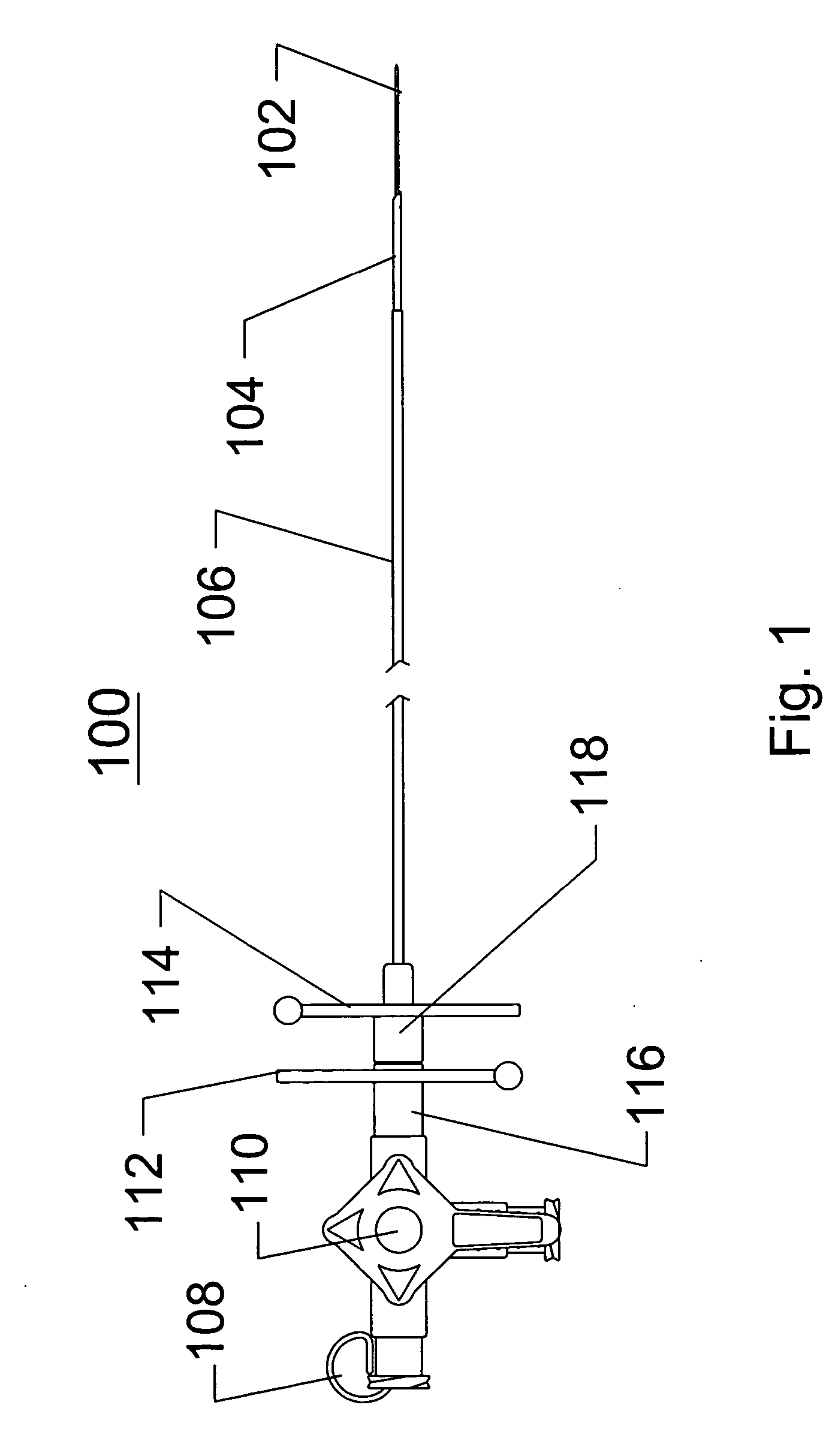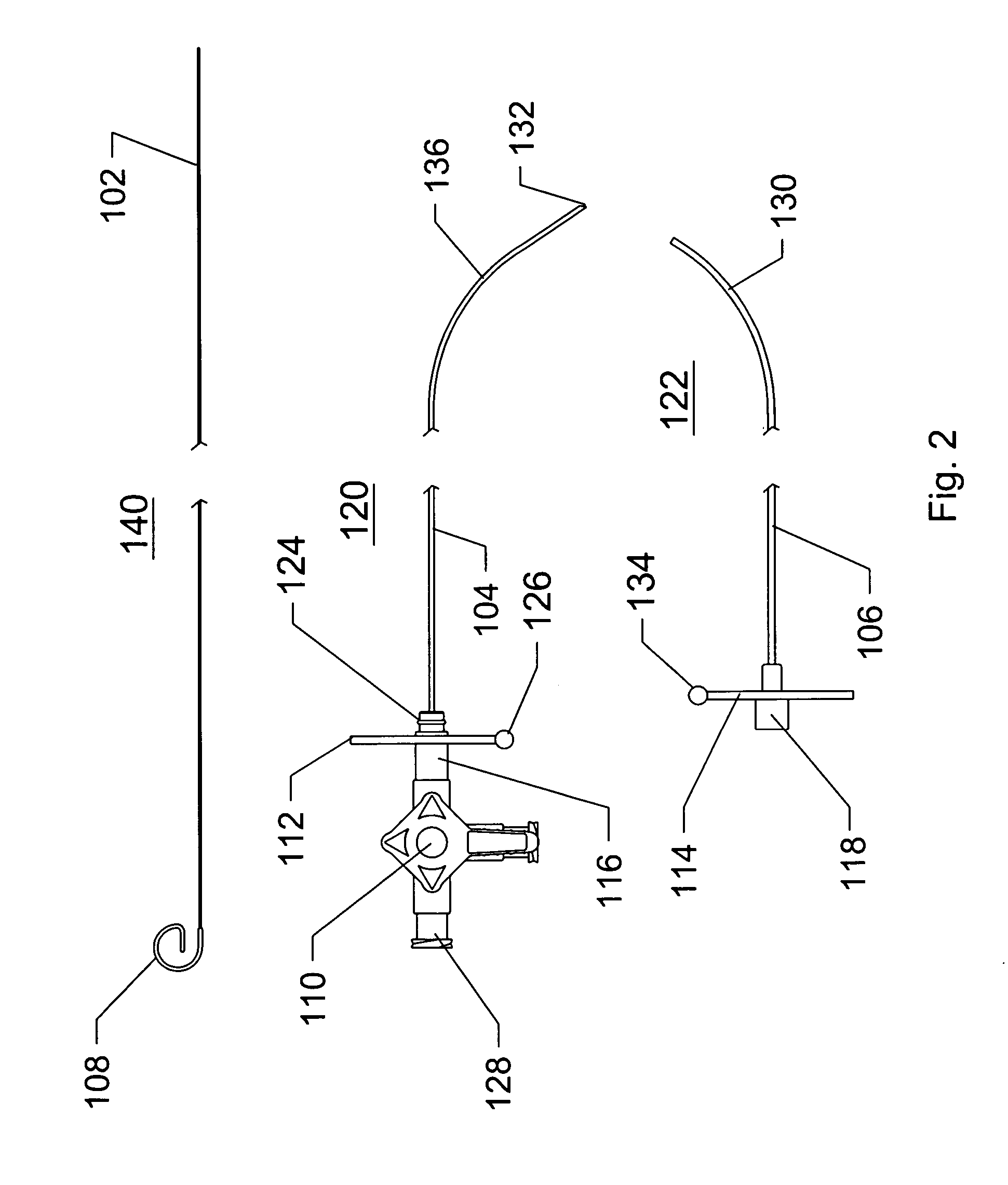Steerable endoluminal punch
- Summary
- Abstract
- Description
- Claims
- Application Information
AI Technical Summary
Benefits of technology
Problems solved by technology
Method used
Image
Examples
Embodiment Construction
[0023] In accordance with current terminology pertaining to medical devices, the proximal direction will be that direction on the device that is furthest from the patient and closest to the user, while the distal direction is that direction closest to the patient and furthest from the user. These directions are applied along the longitudinal axis of the device, which is generally an axially elongate structure having one or more lumens or channels extending through the proximal end to the distal end and running substantially the entire length of the device.
[0024]FIG. 1 illustrates a side view of a punch, needle, or catheter assembly 100, with an integral articulating or bending mechanism. The punch assembly 100 comprises a stylet or obturator wire 102, an intermediate tube 104, an outer tube 106, an obturator grasping tab 108, a stopcock 110, an intermediate tube pointer 112, an outer tube pointer 114, an intermediate tube hub 116, and an outer tube hub 118.
[0025] Referring to FIG....
PUM
 Login to View More
Login to View More Abstract
Description
Claims
Application Information
 Login to View More
Login to View More - R&D
- Intellectual Property
- Life Sciences
- Materials
- Tech Scout
- Unparalleled Data Quality
- Higher Quality Content
- 60% Fewer Hallucinations
Browse by: Latest US Patents, China's latest patents, Technical Efficacy Thesaurus, Application Domain, Technology Topic, Popular Technical Reports.
© 2025 PatSnap. All rights reserved.Legal|Privacy policy|Modern Slavery Act Transparency Statement|Sitemap|About US| Contact US: help@patsnap.com



